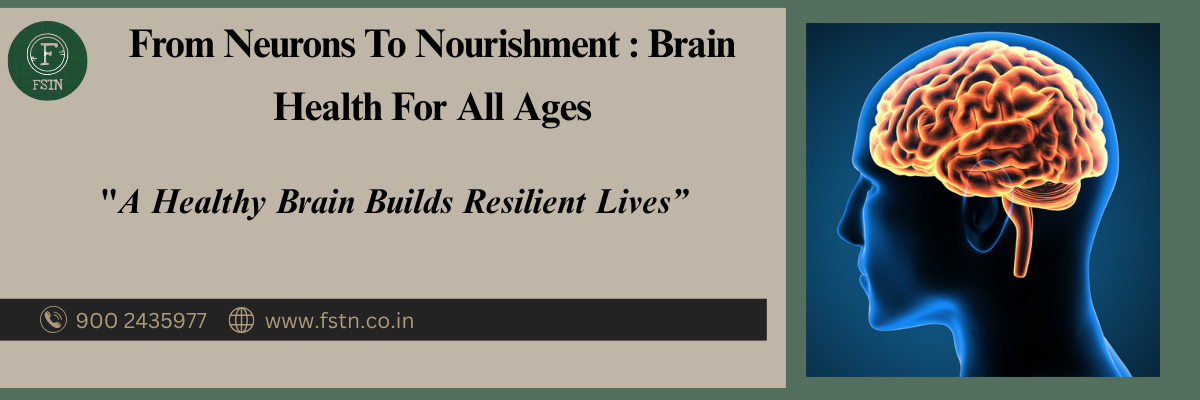Every year on 22nd July, World Brain Day, we pause to honour the brain — the organ that lets us think, feel, learn, and live fully. While genetics and environment shape brain health, our daily choices — especially diet and lifestyle — play a powerful role in keeping the brain sharp, calm, and resilient.
Brain-Friendly Nutrients :
Some nutrients act like fuel, while others are the building blocks or protectors of brain health:
- Omega-3 Fatty Acids — Found in fatty fish, flaxseeds, and walnuts, they help improve memory, support nerve function, and reduce brain inflammation.
- Antioxidants — Berries, turmeric, spinach, and dark chocolate offer powerful protection against oxidative stress, slowing brain aging.
- B Vitamins (B6, B12, Folate) — These support nerve health, mood stability, and mental clarity. Good sources include green leafy vegetables, legumes, and eggs.
- Vitamin D — Vital for cognitive function and emotional well-being. Soak up sunlight and include mushrooms or fortified foods in your meals.
- Iron & Zinc —are essential nutrients for alertness, focus, and oxygen supply to the brain. These vital minerals are found in lentils,green leafy vegetables, jaggery, beans, meat.
- Protein — Proteins supply amino acids that help produce neurotransmitters like dopamine and serotonin. Eggs, dairy, pulses, and nuts are great options.
- Vitamin E — This fat-soluble antioxidant supports brain cell membrane health and may help delay cognitive decline. Nuts, seeds, and spinach are rich sources.
- Magnesium — it plays a important role in stress regulation, nerve transmission, and memory. Bananas, whole grains, seeds, and legumes are great source of it.
Hydration & Gut-Brain Link:
The brain is nearly 75% water, and even mild dehydration can impact mood, memory, and focus. Drink enough water and include hydrating foods like fruits, soups, and vegetables.
Your gut and brain are closely connected. A healthy gut — supported by fiber-rich foods and natural probiotics like yogurt and fermented items — positively influences mood and brain function.
Habits for a Healthy Brain:
Sleep Well: 7–9 hours of quality sleep allows the brain to reset, organize memories and flush toxins.
Meditate Daily: Just a few quiet minutes can reduce stress and improve focus.
Stay Active: Regular physical movement boosts blood flow and releases “happy chemicals” like dopamine, serotonin, and oxytocin.
Keep Learning: Challenge your brain with new skills, music, reading, or puzzles to keep it agile.
Socialize: Meaningful conversations and time with others help maintain cognitive and emotional well-being.
Manage Screen Time : Too much time on digital devices can dull the brain, disturb sleep, and shorten attention span.Protect your mind by:
- Setting screen boundaries, especially before bed.
- Choosing real-world activities over endless scrolling.
Conclusion :
On this World Brain Day, Let’s Nourish our Brain — with wholesome food, good rest, mindful movement, and digital balance. Because a well-cared-for brain isn’t just healthier — it brings out the best version of us.



